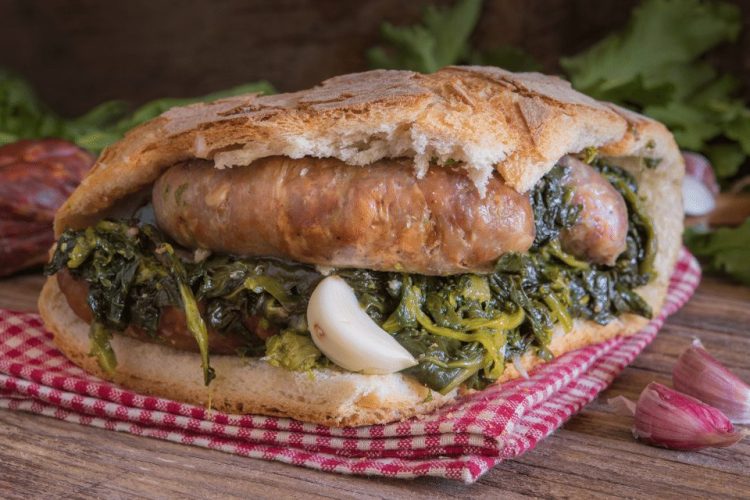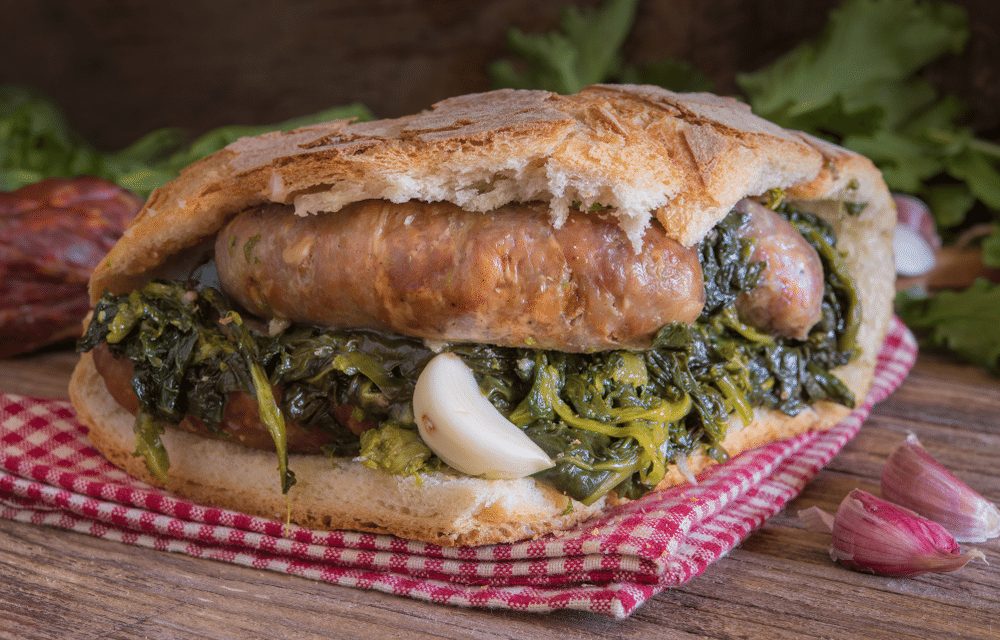A deadly outbreak linked to contaminated broccoli rabe (cime di rapa) has left two dead and 14 others hospitalised in southern Italy, prompting a nationwide recall.

A man has died and nine others were hospitalised in southern Italy after eating sausage and cime di rapa (broccoli rabe) sandwiches suspected by health officials to be contaminated with botulism.
Updated: 13/08/2025
A man has died and nine others were hospitalised in southern Italy after eating sausage and cime di rapa (broccoli rabe) sandwiches suspected by health officials to be contaminated with botulism, triggering a nationwide recall.
Botulism is a rare but potentially fatal toxin that attacks the nervous system, leading to muscle paralysis and breathing difficulties.
Investigation ongoing
Fifty-two-year-old artist and musician Luigi Di Sarno became critically ill on Thursday while driving his family home from a holiday in Calabria. The family had stopped at a street food van in Diamante, in the Cosenza province, where they all ate the same cime di rapa (broccoli rabe) and grilled sausage sandwich, suspected to be linked to the outbreak.
Near Lagonegro, Potenza, Mr Di Sarno’s condition worsened suddenly, forcing the family to stop in the town of Basilicata. Emergency services rushed to the scene, but he tragically died before reaching the hospital. An autopsy is pending to confirm the cause of death.
Nine others, including two women in their 40s and two teenagers, also developed symptoms consistent with botulism and were admitted to hospitals in Cosenza. Two patients reportedly remain in serious condition in intensive care.
Following the incident, authorities swiftly seized jars of broccoli rabe in oil and the food van that prepared the sandwiches as the investigation continues.
The Italian Ministry of Health has also issued a recall of four Neapolitan-style friarelli ((broccoli rabe) products under the brand names Bel Sapore and Vittoria. The two Vittoria products are numbered 280325 and 290425, with expiry dates of 28 March 2028 and 29 April 2028. For Bel Sapore, the affected products carry the numbers 060325 and 280325, and expiry dates of 6 March 2028 and 28 March 2028.
The Paola Public Prosecutor’s Office has now launched an investigation into how Clostridium botulinum bacteria contaminated the food.
The Calabria Region’s Department of Health and Welfare said:
The emergency procedure established in these cases has been activated, which requires immediate notification to the Poison Control Center in Pavia, the only national centre designated for the management of botulism.”
No region or hospital in the country is authorised to store the antivenom in their own facilities. This serum, however, is exclusively available to the Ministry of Health, which holds it in designated secure locations and distributes it only through the Lombardy Poison Control Centre.”
This outbreak follows a similar botulism incident last month in Sardinia where eight people fell ill after consuming tainted guacamole at a festival.
Update (13/08/2025)
Authorities have confirmed a second death, that of 45-year-old Tamara D’Acunto, bringing the total fatalities to two, while hospitalisations have now climbed to more than 14.
Meanwhile, nine people, including the owner of the food truck and three employees of the company that allegedly prepared the sandwiches, are under investigation.
In addition, five doctors who treated victims at two hospitals near Cosenza are also being investigated for not making their diagnoses quickly enough.
What is botulism?
Botulism is a rare but serious illness in which a toxin produced by the bacterium Clostridium botulinum attacks the nervous system. Common symptoms include muscle weakness, double vision and difficulty swallowing. In foodborne botulism, symptoms may also include nausea, vomiting, stomach pain and diarrhoea.
Foodborne botulism is often linked to improperly canned, preserved or fermented foods. Without prompt treatment, botulism can be fatal in around 5-10 per cent of cases.
The US Centers for Disease Control and Prevention (CDC) advises consumers:
Do not eat food if you do not know whether it was safely canned, preserved, or fermented.
Do not eat home-canned or store-bought food if the food or its container has signs of contamination.”


Dining and Cooking